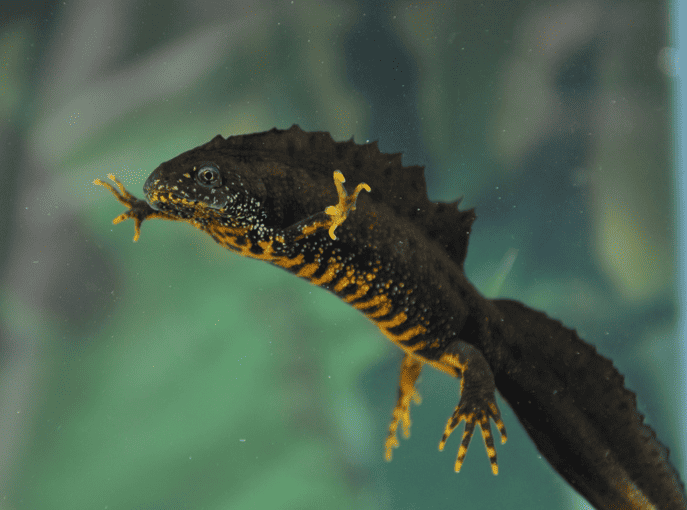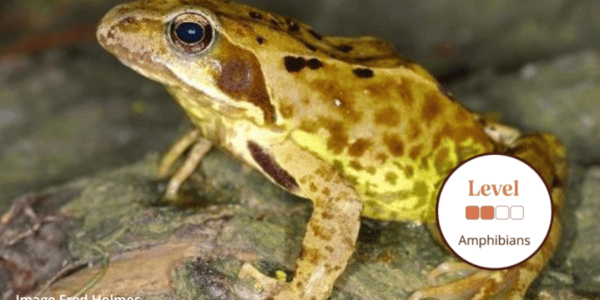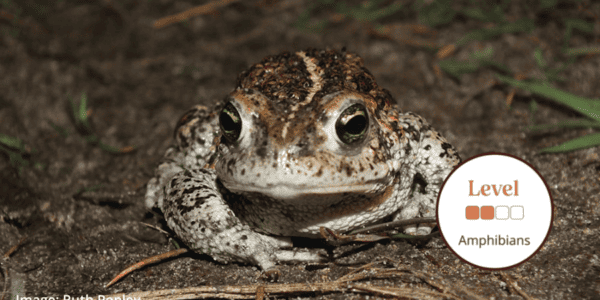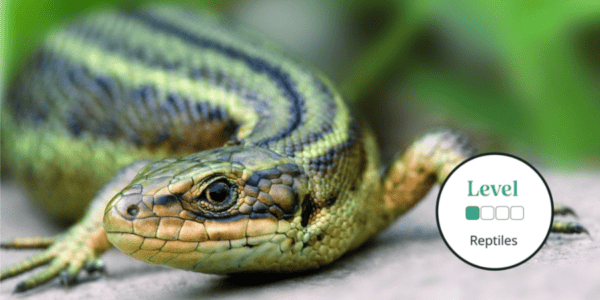This reptile and amphibian course takes a deep dive into identification, ecology and diversity of all the reptile and amphibian species present in the UK, as well as surveying and reporting techniques essential for their conservation.
The course starts on the Friday evening with an introductory talk and survey on campus. You will also be visiting local amphibian and reptile sites over the weekend to practice your identification and surveying skills, and taking advantage of the broad range of habitats surrounding the Preston Montford Centre. You will explore these habitats with your expert tutor, gaining a real understanding of what each species needs to thrive and what factors may lead to their decline.
You will learn how to identify key features and use them to discriminate between species, using a range of core texts and methods. This exciting course will award you with an understanding of the importance of these species for conservation, ecology, and recording, and a practical skill set that will enable you to contribute to their success in the field.
You will be visiting ponds at night to count amphibians, so a good torch is essential. Please see the ‘What to Bring’ section below for further detail.
Tutor: Dr John Wilkinson
John is a conservation ecologist who has been working with amphibians and reptiles for over 25 years. He manages Regional, Science and Training Programmes for the Amphibian and Reptile Conservation Trust (ARC) and has a particular fascination for toads!
Example Timetable
Example Timetable
This timetable is subject to change but should give an outline of what to expect.
If you have booked accommodation with the centre your bedroom will be ready from 3.00 pm onwards on the day of arrival and we ask that you vacate by 9.30 am on the morning of departure.
If numbers are sufficient a station pick up will be arranged at 5.30 pm from Shrewsbury Station.
Please arrive in time for the evening meal at 6.30 pm on Friday
The course starts after dinner with a classroom session 7.30 pm - 9.00 pm
The course ends at 3.00 pm on the final day.
Time will be made available for eating packed lunches during the day.
Friday:
19:30 course introduction classroom session; bottle trap setting on campus
Saturday:
09:15 trap checking followed by classroom session and two field visits;
19:30 great crested newt HSI class and field session on campus
Sunday:
09:30 classroom session followed by three field visits;
19:30 class session to round off the day and a field session on campus if there is time
Monday:
09:30 class review, local field visit to practice surveys, returning by lunchtime for revision of the morning;
14:15 ID Quiz and Opportunity for students to discuss the field assignment.
What's Included
What’s included?
- Classroom learning covering the theory of the subject
- Field excursions to apply new knowledge
- Expert tuition for which the FSC is renowned
- Clear objectives and progression
You can rest assured that the absolute best content from an expert in environmental education will be provided. In choosing an FSC course, you will be joining thousands of people who learn with us each year.
PLEASE NOTE For course bookings including full board accommodation, please note bathroom facilities maybe be shared
Before You Attend
There will be a member of staff with first aid training and access to a first aid kit on site. If you have special medical or access requirements, please let us know as soon as possible so we can make any necessary adjustments.
What to Bring
- Walking boots or wellies
- Waterproofs (also available from the Centre)
- A good torch and batteries
- Camera and binoculars
- Any field guide book
- Notebook and pencils
- Sandwich box and vacuum flask/drinks container
- USB memory stick (to take away additional handouts)
Recommended Reading
Gent, A. and Gibson, S. (1998) Herpetofauna Worker’s Manual. JNCC: Peterborough, UK
Sorry this course booking is closed




